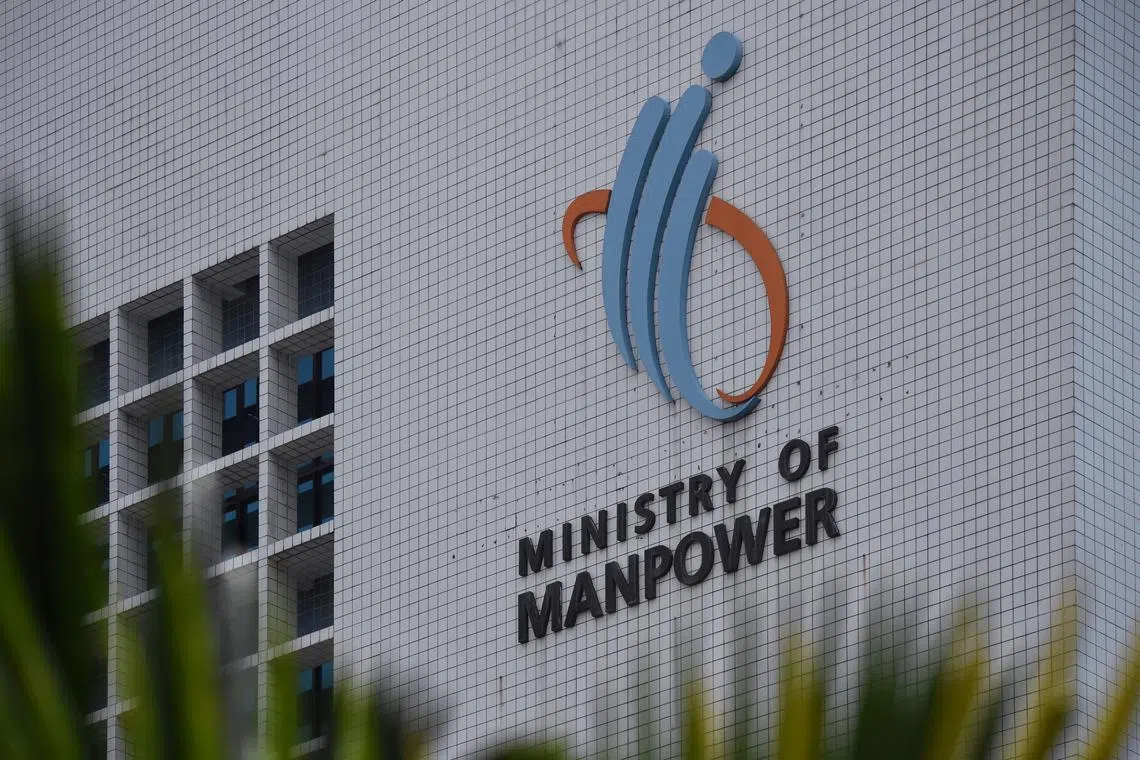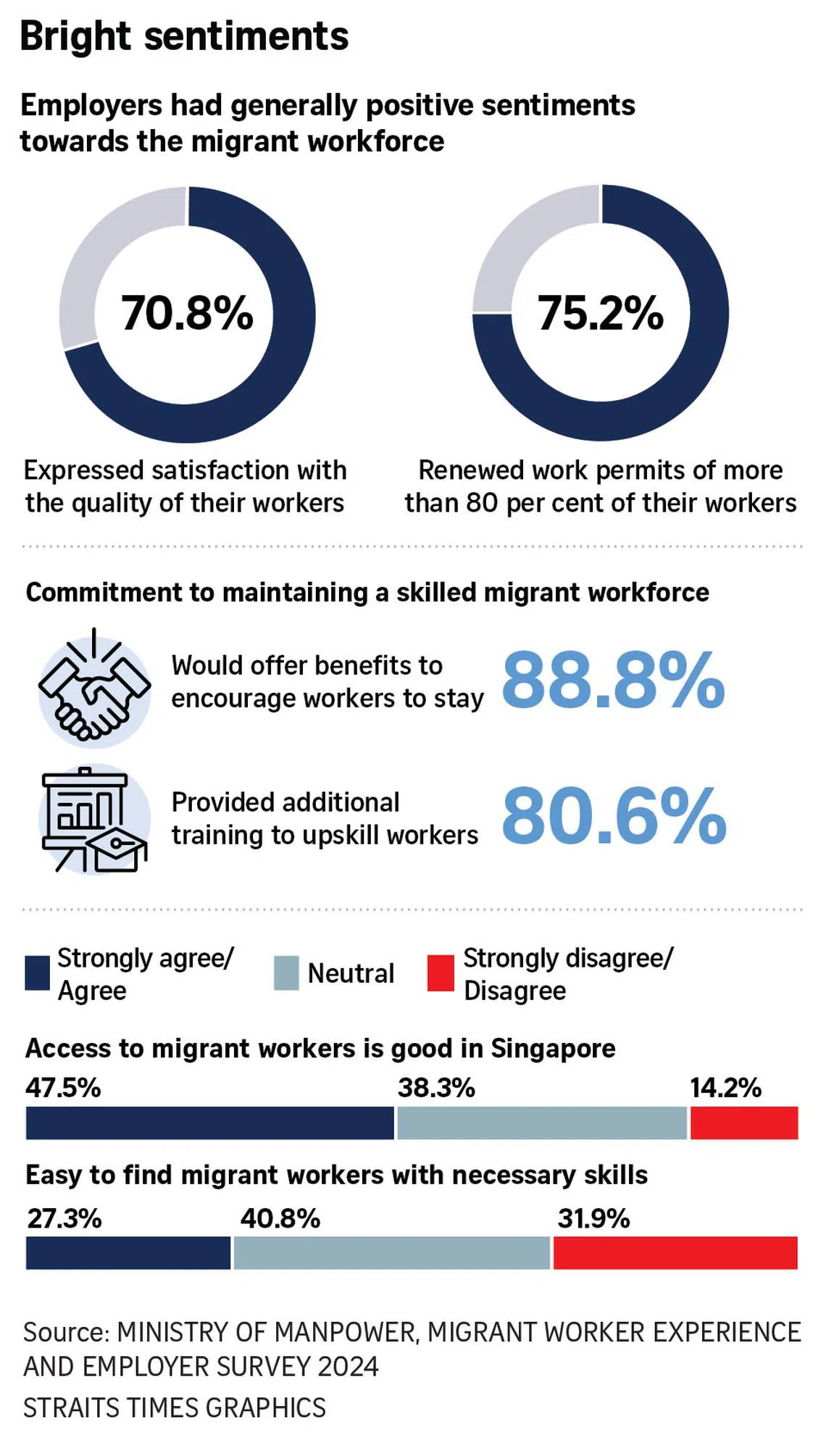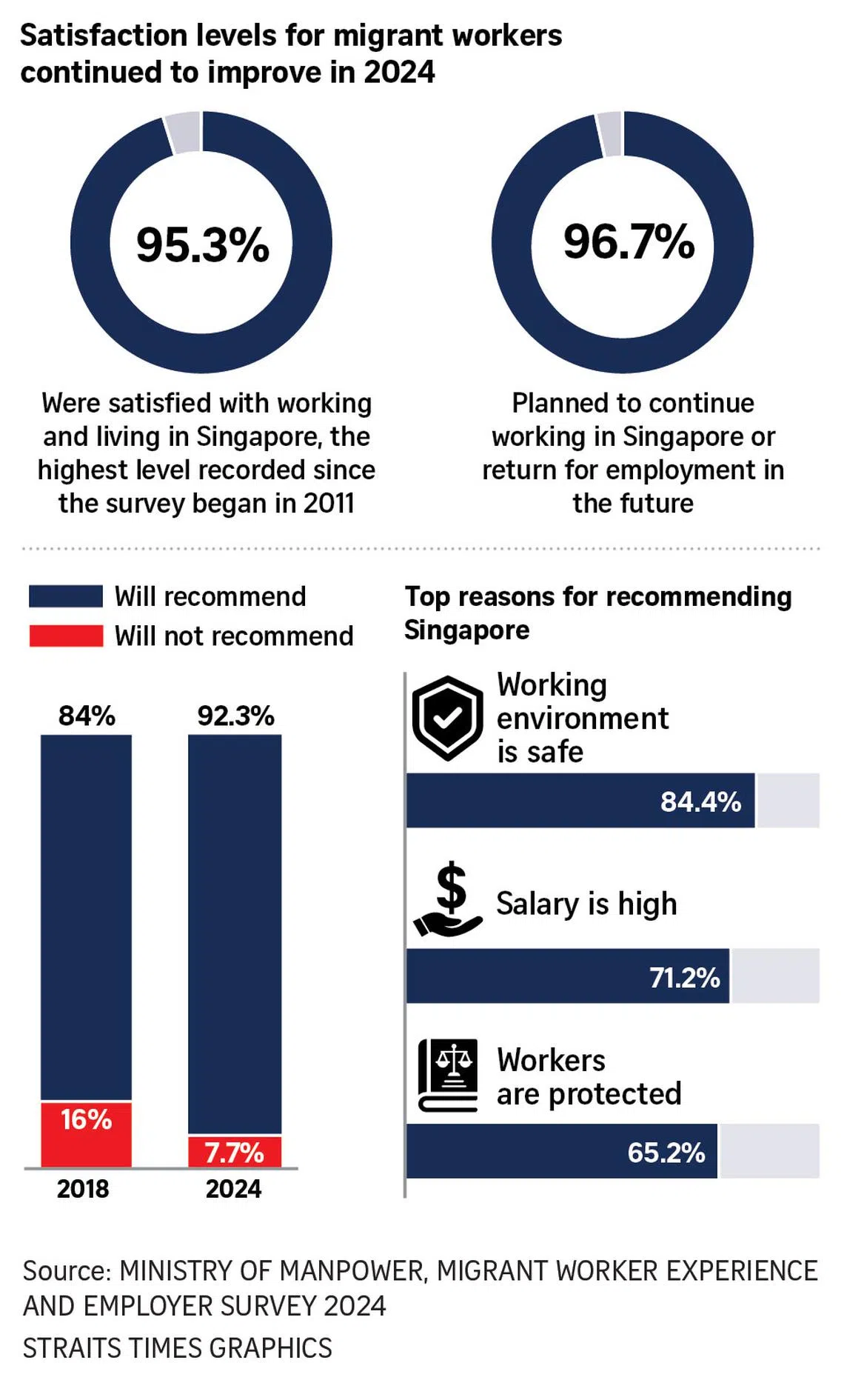7 in 10 employers satisfied with their migrant workers: MOM survey
Sign up now: Get ST's newsletters delivered to your inbox

Migrant workers also reported record high satisfaction with their working and living conditions in Singapore.
PHOTO: ST FILE
- MOM survey reveals 70.8% of employers are satisfied with migrant worker quality. Only 1.4% expressed dissatisfaction while the rest remained neutral.
- Migrant workers reported record-high satisfaction with their work and living conditions, and 92.3% would recommend Singapore as a workplace to their friends and relatives.
- MOM is reviewing the Work Permit Framework to help employers secure higher-skilled migrant workers.
AI generated
SINGAPORE – Most employers are satisfied with their migrant staff, while the workers themselves report record-high satisfaction with their working and living conditions, noted a survey on Aug 21.
The poll – the first of employers that hire migrant workers – found that 70.8 per cent of bosses were satisfied with the quality of these workers, while just 1.4 per cent expressed dissatisfaction. The remaining 27.8 per cent were neutral.
Retention figures were strong as well, with 75.2 per cent of employers renewing the work permits of more than 80 per cent of their migrant workforce.
This suggests “a stable employment relationship”, said the Ministry of Manpower (MOM), which undertook the survey.
Employers were also proactive in keeping their workers, with 88.8 per cent offering benefits such as salary increments and promotion opportunities.
Beyond mandatory safety courses, 80.6 per cent of employers offered additional training to upskill their migrant workers.
However, while 47.5 per cent of the employers felt they had good access to migrant workers overall, only 27.3 per cent said it was easy to find those with relevant skills.
“This suggests there is room for improvement to enable employers to hire higher-skilled workers, particularly in more specialised roles,” MOM noted.
The poll – conducted between October 2023 and February 2024 – received responses from 2,212 firms with migrant workers.
A separate poll on the experience of migrant workers – excluding domestic helpers – attracted 2,825 views. It was also conducted in 2011, 2014 and 2018.
This poll found that 95.3 per cent said they were satisfied with their working and living conditions – a marked increase from 86.3 per cent in 2018 – and the highest level recorded since the surveys started in 2011.
Around 97 per cent said they plan to keep working here after their contracts end – either with their current employer or a new employer, or by returning to Singapore in the future.
Only 2.4 per cent plan to go home for good, while another 0.7 per cent want to go home first before finding work in another country.
Most migrant workers would recommend Singapore as a place to work, a sentiment that has grown stronger. In 2024, 92.3 per cent said they would recommend Singapore to their friends and relatives as a place to work, up from 84 per cent in 2018.
The key reasons cited were Singapore’s safe working environment, high salaries and worker protections.
Trust in MOM as a regulator also improved, with 97 per cent of workers agreeing that the ministry had been effective in protecting them and ensuring safe working conditions – up from about 87 per cent in 2018. About 90 per cent said they found it easy to approach MOM on employment-related matters.
Minister of State for Manpower Dinesh Vasu Dash said the survey findings showed the positive impact of ongoing efforts to improve living standards of migrant workers here.
“Our migrant workers play a vital role in building our nation, and their well-being remains a key priority for MOM,” he said on Aug 21.
“We will continue to work closely with employers, dormitory operators and community partners to ensure that our workers can work in safe conditions and help create a home away from home.”


He added that MOM is reviewing the work permit framework to help employers secure higher-skilled migrant workers – an area that warrants more attention based on the survey findings.
Several changes have been made in 2025 to help employers retain experienced, productive workers.
For example, since July 1, there is no more hard cap on how long a migrant can work here, a significant shift from the previous cap of 14 to 26 years.
The maximum employment age for work permit holders was also raised, from 60 to 63, aligning with Singapore’s official retirement age.



